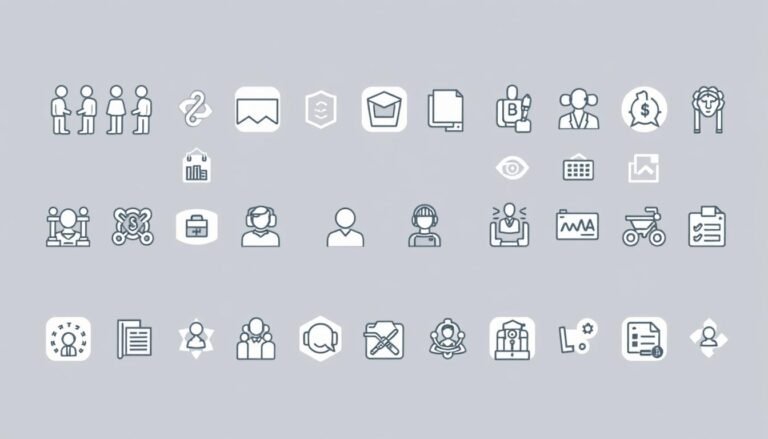Effective Anxiety Coping Skills: Find Relief Now
Are you tired of anxiety taking over your life? Imagine living in a world where you can face each day with confidence. You have the power to fight stress and worry. Anxiety coping skills can help you find peace and balance.
Anxiety touches many lives, but it doesn’t have to control yours. You can use physical techniques like deep breathing or emotional methods like journaling. There are many stress management strategies available to you. The first step to managing anxiety is to learn about these tools and find what works for you.
Studies have shown how effective anxiety coping skills can be. For example, a 2018 study found that exercise can lessen anxiety symptoms. During the pandemic, both intense and moderate workouts helped lower anxiety and stress.
But exercise isn’t the only way to fight anxiety. Nature-based guided imagery, as a 2018 study showed, can boost mental health and reduce stress. If you prefer relaxing at home, a warm bath before bed can help you sleep better. This can lower your anxiety levels, as a 2019 study found.
Key Takeaways
- Physical activity is a proven anxiety-reducer
- Nature-based techniques can improve mental well-being
- Warm baths may indirectly help manage anxiety
- Journaling can reduce anxiety symptoms
- Breathing exercises are research-backed anxiety management tools
- Consistent meditation practice yields best results
- Cognitive-behavioral therapy helps tackle anxiety-inducing thought patterns
Understanding Anxiety and Its Impact
Anxiety affects millions of Americans. About 1 in 5 adults deal with anxiety disorders every year. Social anxiety disorder alone impacts 15 million U.S. adults. It’s key to know the signs and how to manage stress to tackle this issue.
What is Anxiety and How Does It Affect Us?
Anxiety is more than feeling stressed or worried. It’s a constant fear or unease that changes daily life. Generalized anxiety disorder and panic disorder affect many Americans, with women being twice as likely to be affected as men.
Recognizing Anxiety Symptoms
Anxiety shows in different ways:
- Rapid heartbeat
- Excessive worrying
- Difficulty concentrating
- Sleep disturbances
- Digestive issues
Knowing these signs helps in getting help and managing anxiety.
The Importance of Developing Coping Strategies
It’s vital to have coping strategies for anxiety. Cognitive behavioral therapy helps change negative thought patterns. Studies show that certain brain connections are linked to better therapy outcomes.
“Anxiety does not empty tomorrow of its sorrows, but only empties today of its strength.” – Charles Spurgeon
Using stress management, professional help, and personal strategies can greatly improve life and lessen anxiety’s impact.
Physical Anxiety Coping Skills
Coping with anxiety often means using physical techniques to calm your body and mind. These strategies are easy to learn and can be done anywhere. They are great for managing stress and anxiety.
Exercise and Movement Techniques
Regular exercise is a great way to reduce anxiety. Activities like walking, jogging, or yoga can help lower anxiety. Team sports also offer social support, which can help reduce stress even more.
Deep Breathing Exercises
Deep breathing is a simple way to relax. The 4-7-8 method involves breathing in for 4 counts, holding for 7, and breathing out for 8. This method can calm your nervous system fast. It’s also easy to do discreetly, making it perfect for handling sudden anxiety in different places.
Progressive Muscle Relaxation
This method involves tensing and relaxing different muscle groups. Start with your toes and move up to your head, tensing each group for 5 seconds before relaxing. It helps reduce muscle tension and promotes relaxation.
Grounding Techniques
Grounding techniques focus on bringing your attention to the present moment. The 5-4-3-2-1 method asks you to notice 5 things you see, 4 you can touch, 3 you hear, 2 you smell, and 1 you taste. This can quickly bring you back to the present, reducing anxiety.
Remember, practicing these physical coping skills regularly can really help you manage anxiety better. Try adding these techniques to your daily routine. Or use anxiety workbooks to track your progress and find more relaxation exercises.
Mindfulness and Meditation Practices
Mindfulness techniques and meditation are great for managing stress. They help you stay in the moment and watch your thoughts without judging them. Doing these regularly can really lower your anxiety over time.
Studies have shown that mindfulness therapy works well for anxiety and depression. A 2013 study by Khoury et al. found big, lasting changes in mental health. Another study found that mindfulness meditation can slightly reduce anxiety and depression.
Here are some effective mindfulness techniques:
- Guided meditations
- Body scan exercises
- Mindful breathing
- Five Senses meditation
- Raisin Meditation
These methods calm your body and mind by using the parasympathetic nervous system. They help you deal with background anxiety and focus on what you can control. Just 10 minutes of mindfulness meditation can make you more focused and improve your work.
| Practice | Benefits | Duration |
|---|---|---|
| Mindfulness-Based Stress Reduction (MBSR) | Reduces anxiety and panic symptoms | 8-week program |
| Mindfulness-Based Cognitive Therapy (MBCT) | Reduces depression relapse rates by 50% | 8-week program |
| Daily Mindfulness Practice | Improves focus and task performance | 10 minutes |
Adding these mindfulness techniques and meditation to your daily life can help you manage stress and reduce anxiety. Remember, being consistent is important to see the best results from these practices.
Cognitive and Emotional Coping Strategies
Learning how to handle our thoughts and feelings is key to beating anxiety. These strategies, based on cognitive behavioral therapy (CBT), help us change how we think and react to stress.
Journaling and Thought Exercises
Journaling is a strong tool against anxiety. It lets us see our thoughts clearly. By writing down our feelings, we get a better view of what worries us.
Self-monitoring, a CBT technique, makes us notice our thoughts and actions. This awareness helps us change for the better.
Positive Self-Talk and Affirmations
Switching negative thoughts to positive affirmations is a big part of CBT. This shift helps us focus on thoughts that empower us. Regularly using positive self-talk can make us feel better and stronger against stress.
Cognitive Restructuring Techniques
Cognitive restructuring is a key part of CBT. It’s about spotting and fighting negative thoughts. This method changes how we see stressful events, making our thoughts more balanced.
When we use this with techniques like deep breathing and muscle relaxation, it can really cut down anxiety. It also boosts our emotional health.
Source Links
- Coping Skills for Anxiety: 7 Effective Methods to Try
- How to Calm Down: Coping Skills for Anxiety – GoodRx
- Understanding Anxiety Disorders
- Understanding Anxiety’s Physical Impact: Coping Strategies
- How To Deal With Anxiety: 5 Coping Skills and Worksheets
- 35 Anxiety Coping Skills: A List of Effective Remedies
- 6 Effective Anxiety Coping Strategies for Teens
- How to Use Mindfulness Therapy for Anxiety: 15 Exercises
- Mindfulness-Based Interventions for Anxiety and Depression
- Meditation for Anxiety
- How Cognitive-Behavioral Techniques Can Help People With PTSD
- Healthy Coping: 24 Mechanisms & Skills For Positive Coping







